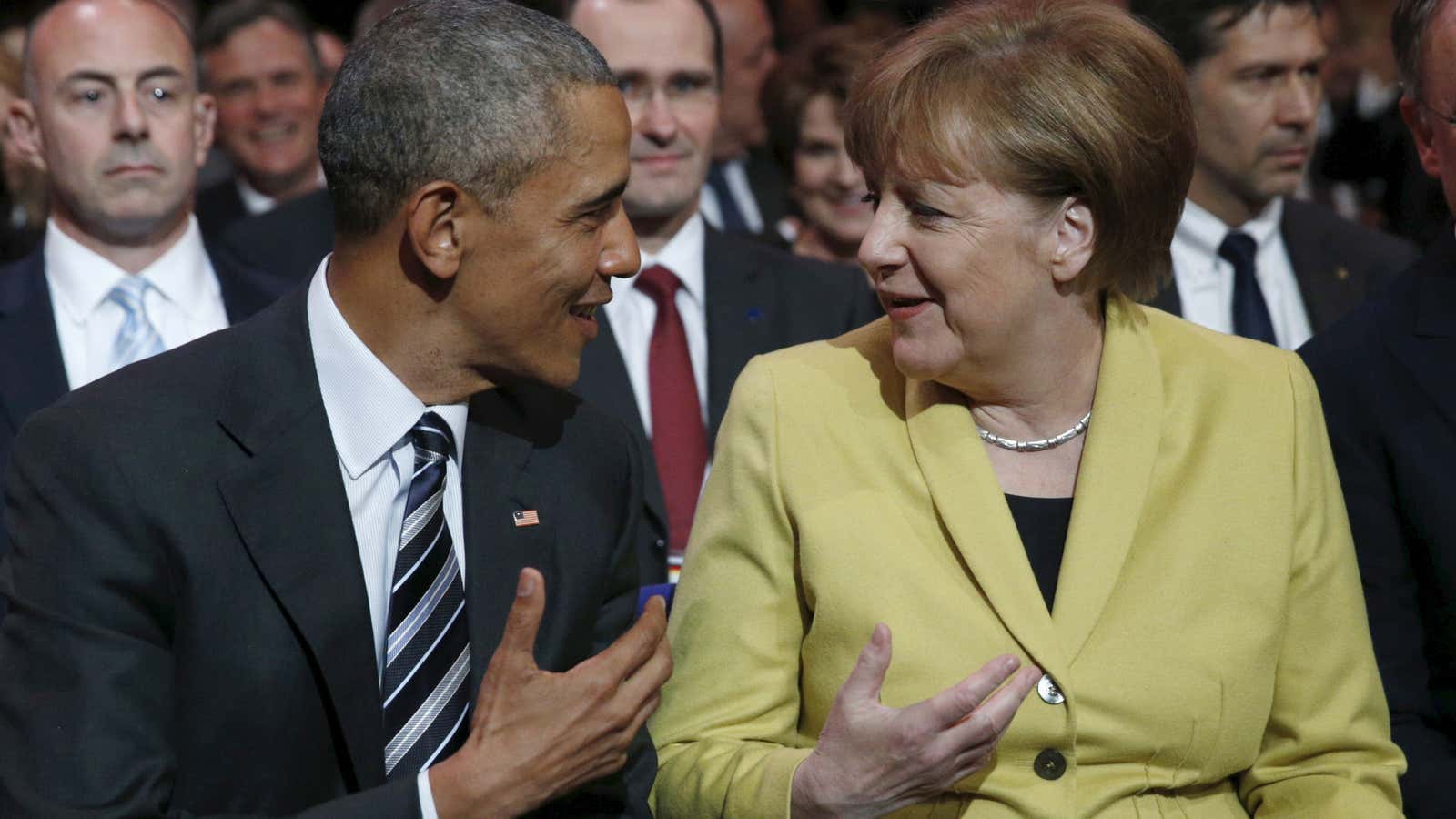During his first campaign for US president, in 2008 Barack Obama received a rapturous reception in Berlin, with some 200,000 people packing into a square to see him deliver a speech that bolstered his credentials as a statesman.
Now, with nine months left in his second term as president, Obama is back in Germany. This time, around 35,000 people gathered in Hannover ahead of his visit to protest. That’s because Obama is in the city not to give a grand public speech laden with soaring rhetoric, but to promote the details of a complex, controversial trade deal between the US and EU to a gathering of German businesspeople.
Obama opened the world’s biggest industrial fair in Hanover by urging German businesses to support the Transatlantic Trade and Investment Partnership (TTIP). “Time is not on our side,” Obama said. “The time to complete TTIP is now.”
The deal has been in negotiations for three years, with the latest round of talks starting today (April 25) in New York. Broadly speaking, the agreement would eliminate import tariffs, reduce barriers to trade, and standardize a host of regulations between Europe and the US.
Supporters say the deal could boost each economy by some $100 billion. But skepticism in Europe—and Germany in particular—is growing, as people fear it might jeopardize jobs and water down environmental and safety regulations. A recent Bertelsmann Foundation survey found that only one in five Germans currently support TTIP, down from more than 50% in 2014.
Obama, leading a delegation of American businesses, lauded the ties between Germany and the US, which saw a 40% increase in bilateral trade, to $235 billion, last year. The US is now the top market for German exports.
“I know trade can invoke great emotions,” Obama said. “These anxieties are real and we have to address them but the answer is not to pull up the drawbridge and stop trade.”
The president expressed confidence that negotiations could be completed by the end of the year, although the deal probably won’t be ratified so quickly, with the American side distracted by an unpredictable, rancorous presidential election campaign.
“We need to hurry up,” chancellor Angela Merkel said, emphasizing that the free-trade agreement will “absolutely” help the EU economy to grow.
Currying favor with the local audience, Obama has missed no opportunities to praise Merkel. Even before he landed in Germany, he told Bild (paywall): “I’m proud that Angela is my friend.”
He amped up his admiration for the chancellor at the Hannover press conference. “Chancellor Merkel has been consistent, she has been steady, she is trustworthy,” he said. He stressed that she is “on the right side of history” with her generous policy towards refugees, a stance that has hurt her otherwise extraordinary popularity among the German public.
He also lauded her sense of humor—not something that Germans would necessarily consider one of her stronger traits.
Obama’s charm offensive continues later today, when the free-trade deal will also be high on the agenda in a meeting with Merkel, British prime minister David Cameron, French president Francois Hollande, and Italian prime minister Matteo Renzi.
